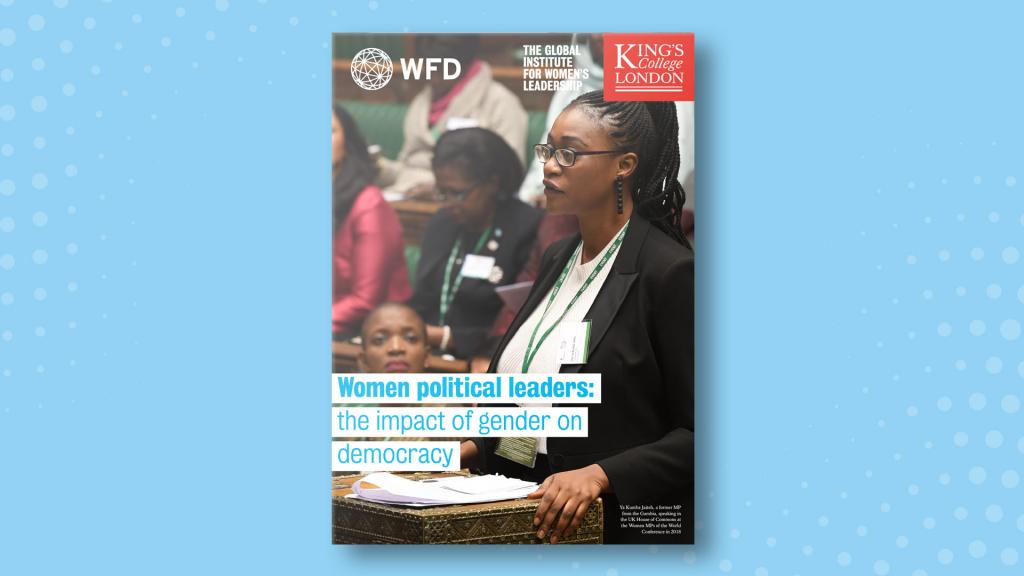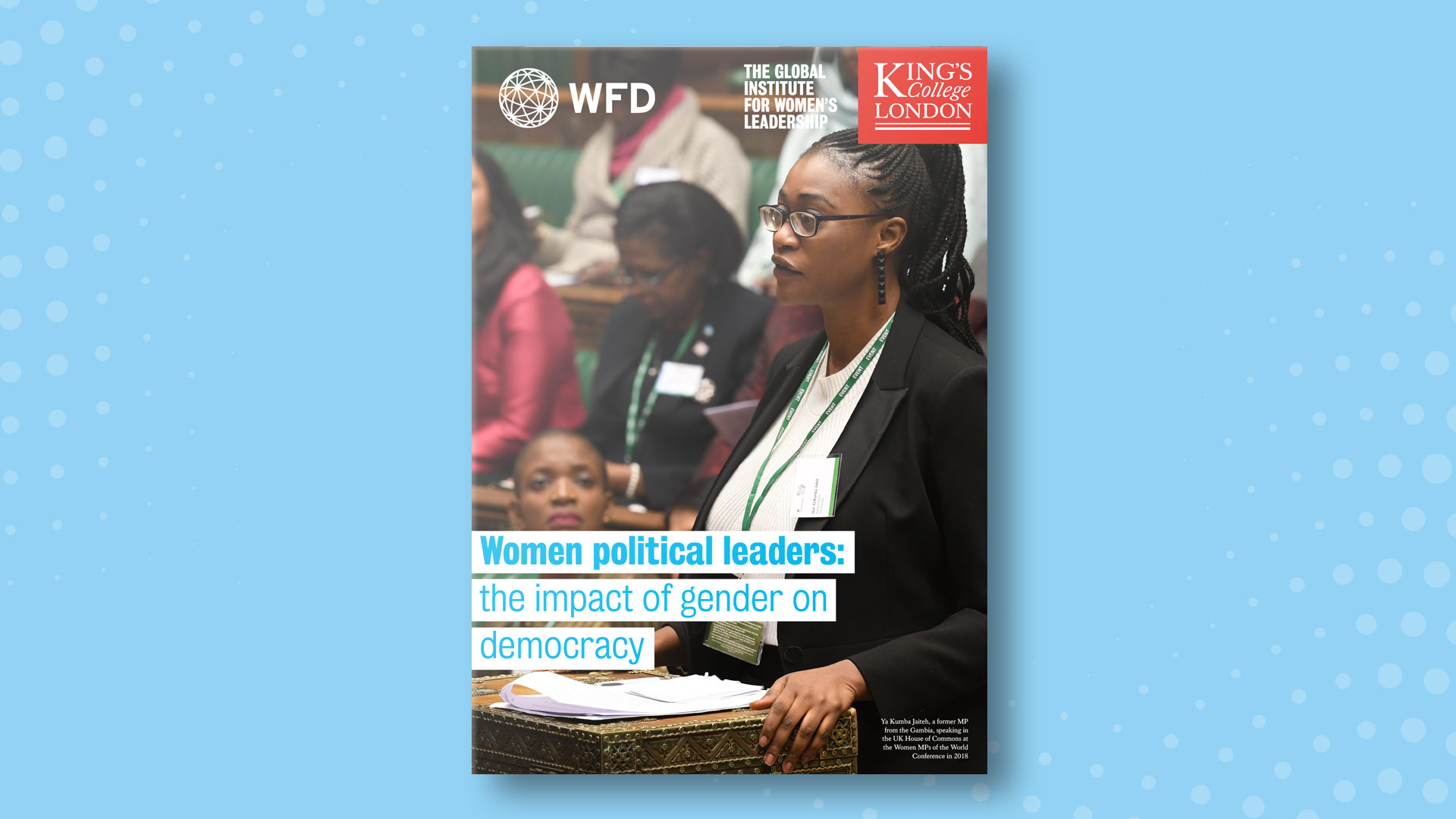When women take part in politics, the whole of society benefits. That is the main finding of this report, which is produced in partnership with the Global Institute for Women’s Leadership at King’s College London.
Women Political Leaders: The Impact of Gender on Democracy is based on an analysis of over 500 pieces of research into the impacts of women leaders in politics and public life.
The report shows that when women are able to exercise political leadership, there are gains not just for women and girls but for the whole of society.
Key findings
- Women policy makers prioritise issues that benefit the most vulnerable in society, such as healthcare, welfare and education. As such, more women leaders seem to make for more equal and caring societies;
- Women may be more likely to focus on these issues because they have greater experience of deprivation, and because they are often responsible for caring for others;
- On average, women work harder than men to represent their constituencies, which is linked to a stronger sense among voters that government is responsive to their needs;
- Increased representation of women in elected office is associated with counteracting corruption and focusing resources on the quality and consistency of public service delivery;
- States where women hold more political power are less likely to go to war and less likely to commit human rights abuses;
- Women bring collaborative and inclusive leadership styles into political environments that are often characterised by division and one-upmanship.
Together, these factors represent the key ingredients to drive economies, ensure stability and improve quality of life, the study says.
Yet, the report shows, there are still significant barriers to women’s equality of participation in politics and public life. Predominantly: money, violence and cultural norms. For example, the costs of campaigning are often prohibitive, women entering politics can face violence and sexual harassment, and they are often disadvantaged by negative stereotypes of women.
Professor Rosie Campbell, Director of the Global Institute for Women’s Leadership at King’s College London, said:
“This is a unique and important piece of work that makes an unequivocal case for the multitude of ways that politics, governance, economies and societies thrive when women take their place as leaders.”
Shannon O’Connell, Director of Programmes at Westminster Foundation for Democracy, said:
“Understanding the gendered nature of political leadership and decision-making is more important than ever as we collectively rebuild and hopefully move towards are more sustainable, resilient and inclusive future.”
The report is also available to download in Indonesian, Arabic, Kyrgyz and Russian.

Women Political Leaders: The Impact of Gender on Democracy - Indonesian version
Download



